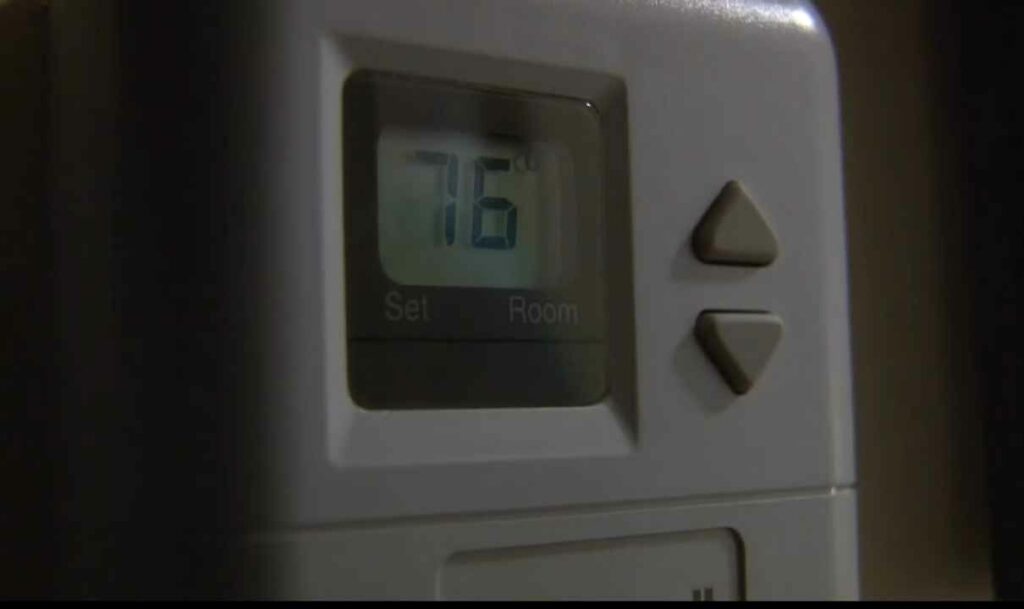For some people, though, the use of air conditioning can cause nosebleeds.
While nosebleeds are not typically a serious medical condition, they can be a nuisance.
A few different things can cause nosebleeds related to air conditioning.
If your AC unit isn’t properly humidifying the air, it could be making your nose drier than usual and more susceptible to bleeding.
Another possibility is that ACs circulate bacteria and other allergens, which can irritate the nasal passages and cause nosebleeds.
If you have allergies or a sinus infection, using an AC could make these conditions worse and trigger nosebleeds.
If you’re concerned about your AC causing nosebleeds, talk to your doctor.
They can help you figure out if there’s a connection and what steps you can take to prevent future bleeds.

Can Too Much Ac Cause Nose Bleeding?
There are a few reasons why too much AC could cause nosebleeds.
First, the air inside your home is much drier than the air outside.
This can dry out the delicate tissues in your nose, making them more susceptible to bleeding.
Second, when you have the AC on, you’re probably not opening your windows as often.
This means that any pollutants or allergens in your home are more likely to build up, irritating your nose and leading to bleeding.
Finally, if you have a cold or allergies and are using a decongestant spray in addition to the AC, this can further dry out your nose and contribute to nosebleeds.
If you’re concerned that your AC is causing nosebleeds, there are a few things you can do to help prevent them.
First, try running a humidifier in your home to add moisture to the air.
You can also use saline nasal spray or gel to moisten your nostrils.
And be sure to drink plenty of water throughout the day to stay hydrated.
If you continue to have frequent nosebleeds despite taking these precautions, it’s best to see a doctor for further evaluation.
What in a House Can Cause Nosebleeds?
There are a few things in your house that could be causing your nosebleeds.
Here are some of the most common culprits: Dry air: If the air in your home is particularly dry, it can lead to nosebleeds.
This is because dry air dries out the mucous membranes in your nose, making them more prone to bleeding.
You can combat this by using a humidifier or by keeping a bowl of water near your radiator to add moisture to the air.
Allergies: Allergies can also cause nosebleeds, as they irritate the delicate tissue in your nose and make it more likely to bleed.
If you have allergies, try to avoid triggers like dust or pet dander, and use an over-the-counter antihistamine or nasal spray to help relieve symptoms.
Nasal trauma: If you accidentally hit your nose or put something up too far (like when you’re cleaning), it can damage blood vessels and cause them to bleed.
To avoid this, be careful when handling objects near your face and always be gentle with your nose.
If you’re experiencing frequent or severe nosebleeds, it’s important to see a doctor so they can rule out any underlying medical conditions.
In most cases, however, simple lifestyle changes like using a humidifier or avoiding allergens will help reduce the occurrence of nosebleeds.
Does Ac Cause Dry Nose?

When the weather outside is cold and dry, you may notice that your nose feels dry, too.
This is because the air inside your home is also quite dry. To combat this problem, you may use a humidifier to add moisture to the air.
However, you may be wondering if using an air conditioner (AC) can also cause your nose to feel dry.
The answer is yes – AC can cause your nose to feel dry. However, there are a few things you can do to combat this problem.
First, make sure that your AC unit’s filters are clean.
Dirty filters can restrict airflow and make the air inside your home even drier. Second, try using a humidifier along with your AC unit.
This will help add moisture to the air and prevent your nose from feeling dry.
Finally, drink plenty of fluids throughout the day to keep yourself hydrated.
If you follow these tips, you should be able to prevent your nose from feeling dry when using an AC unit.